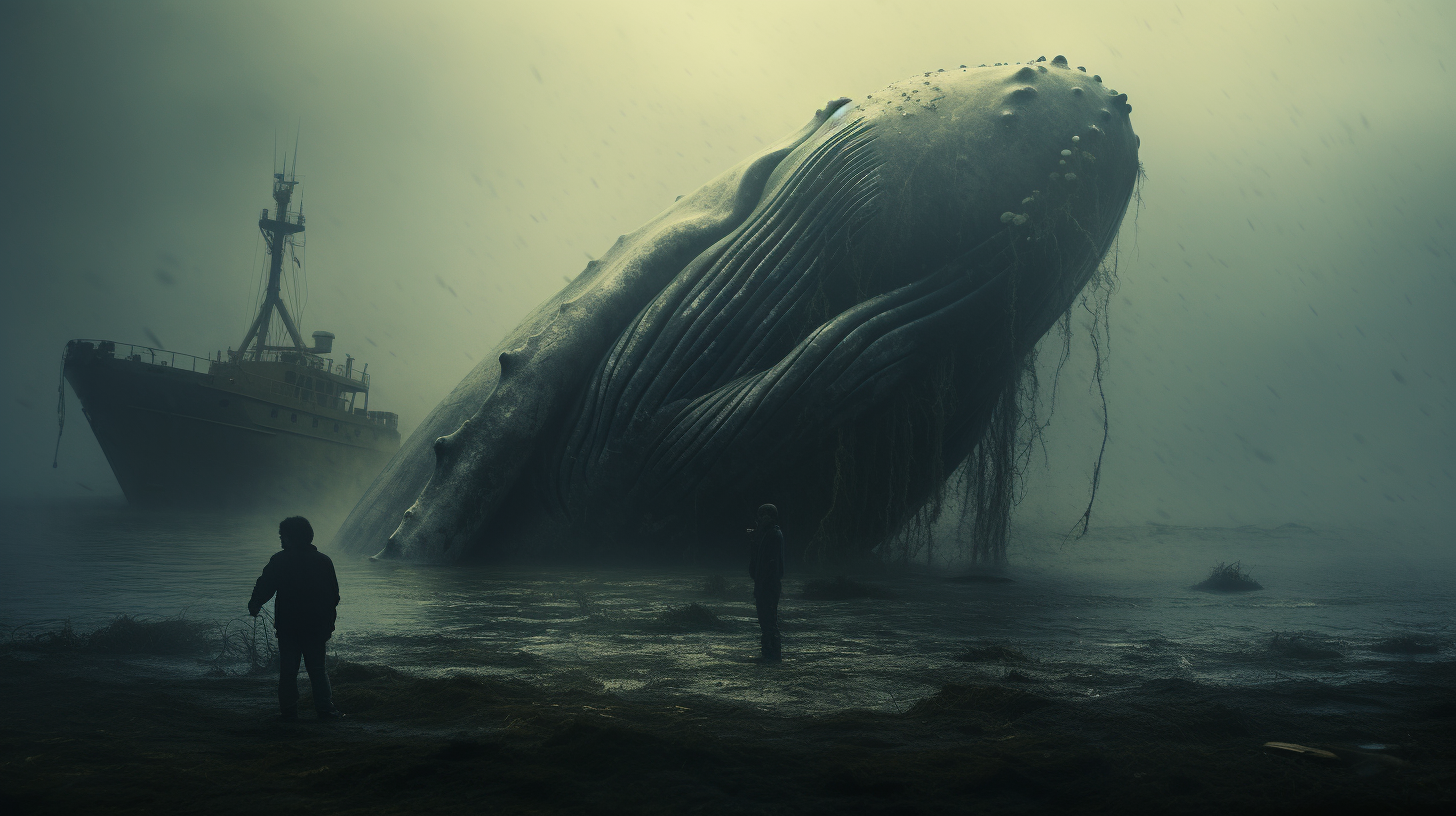In the grim tapestry of climate apocalypse, the once majestic whales are now merely whispers of sea tales, silhouettes sinking into obscurity. Weaved from the same cloth as the forlorn polar bears—the heartrending mascots of the frigid north—whales have become specters in our oceans; benign behemoths facing a reality far removed from their nautical myths. “Whale Chronicles – Giants Fading into Folklore” etches the melancholy journey of these gentle leviathans as they navigate through the threnody of their existence.
From the krill-deprived Antarctic to the plastic-laden Pacific, every breach is a gasp for survival. The Baleen giants, filter feeders of the deep, starve in a sea where the buffet of microorganisms has thinned. Climate change has rearranged their feeding grounds, creating echoes in places where the cacophony of life once flourished. “Their songs have become requiems,” shares a marine biologist, her eyes reflecting the gloom of a research dedicated to cataloging extinctions rather than discoveries.
The symbiotic relationship between the ice caps and the whales’ migration paths crumbles as the polar regions weep saline tears. Disoriented by the warming waters and vanishing ice, they wander as if searching for the remembered chill of yesteryears—lost paths in the warming labyrinth of seas.
Harpoons no longer pose the primary threat, although their grisly legacy lingers like a stain. It’s the invisible changes, the silent shifts in the marine soundscape, that bring about a dirge for the deep divers. Whales abjectly communicate in the disrupted sonar symphony, their calls stifled by the cacophony of ship engines and the amplified anxiety of a marine milieu in disarray.
Mother may end up singing her calf to its final sleep—a heartrending lullaby—as the promise of endless blue yonder turns fatal. Pollution, ship strikes, and rising temperatures are culprits, but it is the sheer indifference of mankind that is the executioner. The irony is cruel: our generation may be the last to witness these titanic travelers in the flesh before they slip away into the realm of myth and sailor’s yarns.
As with the polar bears, we are left with an impending void—an ecosystem fraying at the edges. The ripples of their demise will be felt up and down the food chain, a forewarning of the cataclysm that is climate change not just for the ocean’s titans, but for all. The cascading consequences are emblematic of a world where the dominos of biodiversity topple one by one.
In the chilling shadow of the whales’ demise, we find ourselves reflecting upon our own legacy. Do we forge ahead with the narrative of destruction or do we pause, acknowledge, and attempt to amend? The irony of our chronicled whales serves as a cautionary tale; they are the barometers of our planetary health, much like the polar bears on their shrinking ice sanctuaries. And their fading is a stern rebuke to our collective apathy.
The whales, too vast to be contained within the narrowing margins of survival, beckon us to wider consciousness. They are not just fading from our waters, but from our conscience.
